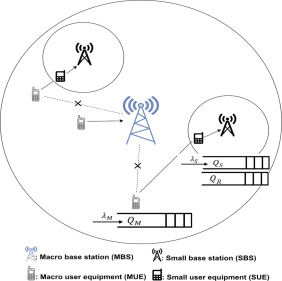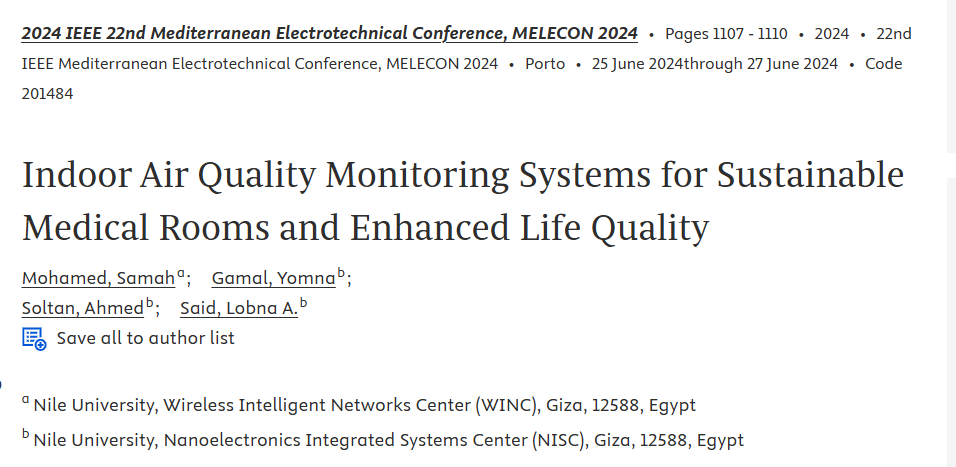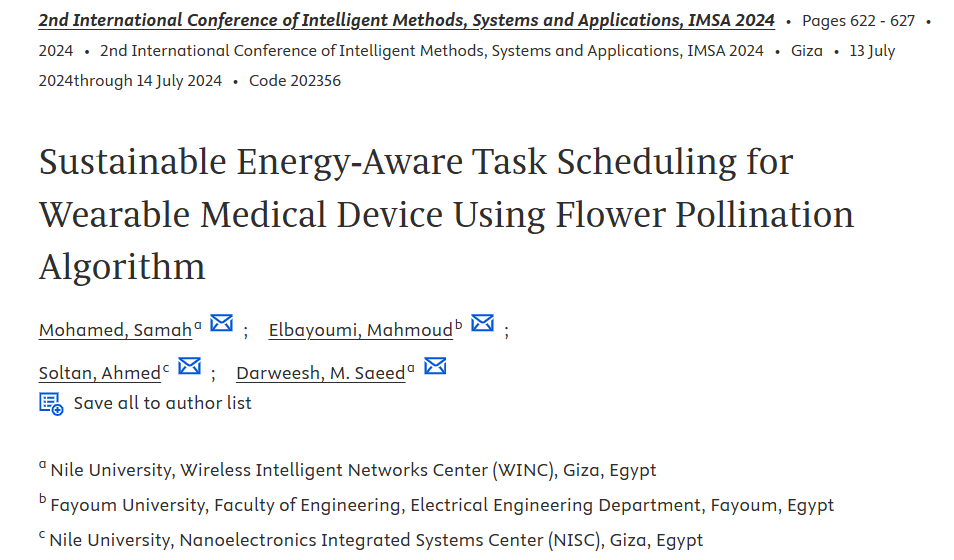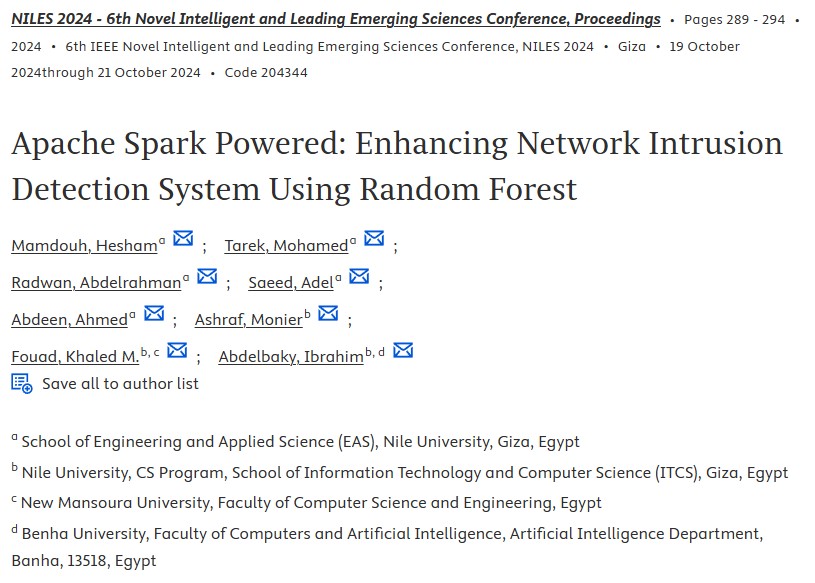
A queueing theory approach to traffic offloading in heterogeneous cellular networks
Future and current cellular networks encounter an unprecedented growth of mobile devices traffic, imposing various critical challenges that should be thoroughly addressed. Catering for such enormous amount of traffic demand via cellular networks significantly increases the network congestion and degrades the achievable quality of service (QoS). Thus, traffic offloading has been suggested to tackle the expected high growth rate in cellular networks and alleviate the foreseen performance degradation. Most of the previous works in the literature aim to increase the number of offloaded users, and, as a consequence, increase the number of admitted users to the network. However, this has been done without considering users’ traffic load. In this paper, we consider the offloading problem in a HetNet with D2D communication taking into account the traffic load in the network. First, we study the maximization of the total network throughput while maintaining the system queues stability, which is found to be a non-convex problem. Thus, we propose a heuristic offloading algorithm that is shown to achieve comparable performance to that obtained through an exhaustive search algorithm. Additionally, we derived the average delay encountered by the network users packets under such setting. Second, we study the maximization of the total network energy efficiency (EE) while maintaining the network queues stability and the maximum transmit power constraint of each user. The optimization problem aims to find the optimal offloading decision besides the transmit powers of each user in the network according to the obtained offloading decision. We propose another heuristic EE-based offloading algorithm due to the non-convexity of the problem. Numerical simulations demonstrate the effectiveness of the proposed algorithms in outperforming similar algorithms in the literature that do not take into consideration the users’ traffic load into the offloading decision. © 2021 Elsevier GmbH




